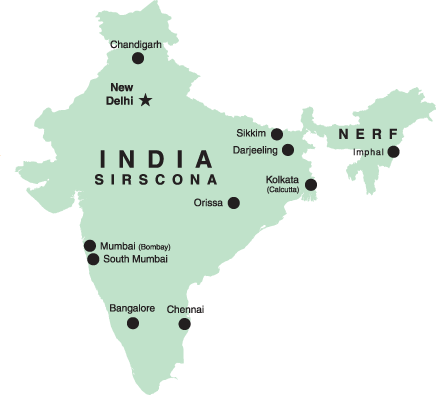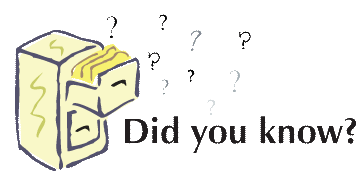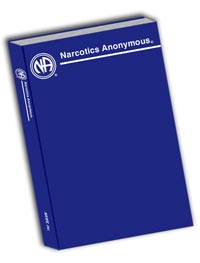 |
|
|
|
Service
Translating the message: NA World Services held a translations workshop in Delhi, India, in April 2005. You might be thinking, “Oh, no, not another article about a workshop—how boring!” Okay, this may be a boring article on a workshop—but at least it’s in English. Think of all the addicts in my region who don’t have the luxury of reading NA literature in its original language. Imagine scores of addicts sitting quietly through a meeting where the readings are in English—a language they do not understand. Though recovery is an experience beyond words, we still need to have our literature translated into local languages so that every addict can have a clear sense of the essential message of Narcotics Anonymous. For us, recovery is a matter of life or death. So if you are tired, sleepy, or bored, splash some water on your face, say a prayer, call your sponsor, take a bath, do anything—but please read this article. Translation can bring life to a still-suffering addict. The workshop was attended by thirty-four representatives from ten areas in the Indian Region: Delhi, Kolkata, Chennai, Mumbai, Bangalore, Chandigarh, Orissa, Darjeeling, Sikkim, and South Mumbai. The nine languages spoken among these representatives were Bengali, Hindi, Kanada, Marathi, Nepali, Oriya, Punjabi, Tamil, and Urdu. More languages from a single region were simultaneously represented at this NAWS translation workshop than ever before in the history of Narcotic Anonymous. Nine languages, ten areas, and thirty-four representatives! Could we possibly have clarity in such multiplicity? In spite of the great linguistic diversity of our region, we found that all faced the same essential problems and arrived at the same basic solutions while attempting to translate NA literature. For example, each language group agreed upon five steps that could not be avoided:
The main concern while translating from English is conceptual fidelity. Simple and obvious English words like “connection,” “addiction,” “using,” and “clean” are often difficult to translate into our regional languages. Conceptual fidelity implies the communication of a basic idea, not merely a literal rendering of the words of a sentence into a different language. The crux is to get the whole idea across clearly, rather than get stuck on those words that do not have precise equivalents. While discussing conceptual fidelity in small groups of five to six members, we identified ways to deal with difficult words. We acknowledged that it is often preferable to transliterate (directly copy English words) that do not have direct equivalents in the target language. While translating into Hindi, for instance, it seemed practical to transliterate terms like “recovery,” “addiction,” and “addict” rather than use the suggested Hindi equivalents. The search for similar words and phrases that express the concept at hand is, of course, indispensable. The use of local idioms, colloquialisms, and traditional proverbs can often go a long way in helping to capture the spirit and essence of the NA message. Interaction amoung LTCs is highly beneficial and mutually rewarding. It is useful to stay in touch with NAWS and profit from their experience My experience in translation service is that motivating LTC members can involve a considerable amount of creative effort. While discussing this issue as a group, we came up with some strategies to keep members involved. We agreed it is useful to regularly announce LTC meetings and hold meetings on weekends and holidays. We also thought it is essential to create awareness that translating NA literature can help us understand the information better for ourselves and keep us vitally in touch with the NA message. Involving both newcomers and experienced members in the translation process is a good idea. If we can, we want to cover the participants’ expenses, such as those for travel and food, whenever possible. Finally, we all agreed it is really important to acknowledge and recognize the hard work done by LTC members and possibly thank them with a piece of free NA literature or merchandise upon completion of a term or a project. Are all NA members really qualified to be LTC volunteers? Technically, yes. It is certainly against the NA spirit to discourage anyone from active service! However, translation is an activity that requires specific linguistic skills. Not all members possess such skills, and those who do are, in some cases, the most hesitant to volunteer. A crowded LTC committee can become chaotic and ineffective. Who should volunteer for an LTC? What are the basic tools for efficient and effective translation? Our group discussions led us to five important guidelines:
It was amazing to be part of this mixed bunch of recovering addicts who had gathered to discuss translations challenges and solutions. The value of the small- and large-group discussion format was stressed and was very successful. This format emphasized the value of every participant and fostered group consensus. This is a beautifully simple discussion format for highly complex participants! Organizing nine languages, ten areas, and thirty-four participants proved enjoyable, interesting, and highly educational. Like most NA events, it was a lot of fun. Participating in a workshop is interesting; writing about it is relatively easy; reading a long article on a workshop can, of course, be tediously boring and laborious—but here you are, at the end of the article. If and when you find yourself at a meeting where the language spoken is not one you understand, please remember this article, and use the experience as an opportunity to appreciate the value of translating NA literature to carry our message of recovery. Ivan P, South Mumbai, India Editor’s note: Excerpts of Ivan’s article also appeared in the November 2005 issue of NAWS News.
|
||||||||||||||||||||||
| Contact NA World Services |
|
Return to Home Page |



